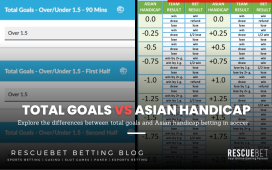The gambling industry in Turkey is strict and bound by several laws. Turkey stopped all forms of casino gambling in 1998, but several forms of illegal gambling still exist because of the massive demand for the Turkish nation’s betting services. Online gambling in Turkey is permitted, but only through official or State-sponsored casinos or lottery. One example is Milli Piyango. However, the punters are severely restricted in terms of betting options, variety of odds, etc., which prompts Turkish punters to place wagers with illegal web services or place wagers with web services based out of the country. Turkish punters may face accessibility issues when accessing web services located out of the country. Most countries across the globe that have gambling restrictions in place tend to target gambling operators. Turkey was the first country to change that dynamic by focussing and fining individual bettors found guilty of placing wagers, apart from the operators. Despite these laws, several Turkish pro-bettors have risen to prominence in the last decade. Turkey’s punters love playing online slot games and live casino games apart from betting on Asia and Europe’s top tournaments.
Turkey Online Gambling
Some of the key features of online gambling in Turkey include blacklisting, VPNs, legal betting, payments, and taxes.
Legal Betting
The Turkish authorities recognize three forms of gambling legal within the state. Punters can make wagers at horse race-tracks, sports wagers through IDDAA (regulated and operated by the State), and lottery betting through the State lotto (Milli Piyango). Punters in Turkey have little scope to find betting services apart from the State mandated options. The main setback with this system is that punters have very few options to choose from and are at the mercy of the country’s sole odds provider.
Blacklists
The Turkish authorities take several steps to enforce their strict gambling laws. One way the authorities prevent unauthorized services is by adding IP addresses that host or play at illegal casinos to a blacklist. Once a site, IP, or service is added to the blacklist, web users cannot legally access the website unless with a VPN. Most of the big European gambling websites and sportsbooks are blocked in the country.
VPN
Most punters in Turkey use a VPN to prevent the authorities from tracking an individual’s IP address when gambling with unauthorized sportsbooks and websites. A VPN is a virtual private network catered to protecting an individual’s online activity. A VPN also gives a punter access to content not available in Turkey (such as betting content). Most punters use a VPN to gain access to betting services and other services such as apps or games that the country may restrict.
Payments
Punters can choose to make payments through official routes when gambling with State-sponsored gambling houses. However, punters choose alternative transfer methods such as Transferwise and Paypal to make untraceable deposits and withdrawals with different sportsbooks. Several punters within the country with alternative currencies such as crypto assets cannot efficiently spend their assets on betting services.
Taxes
A punter gambling within Turkey legally is liable to pay a gambling tax on their winnings. The tax applicable on sports betting is capped at 5% of the winnings, the tax applicable for betting on horse races is capped at 7%, whereas the tax applicable on all other games of chance is capped at 10% of the total winnings. Punters who place wagers with illegal sportsbooks are still required to pay taxes on their winnings or face federal prosecution.
























